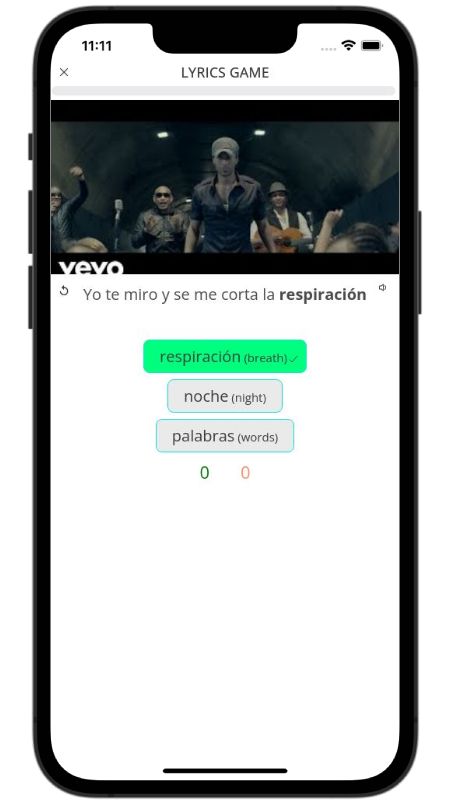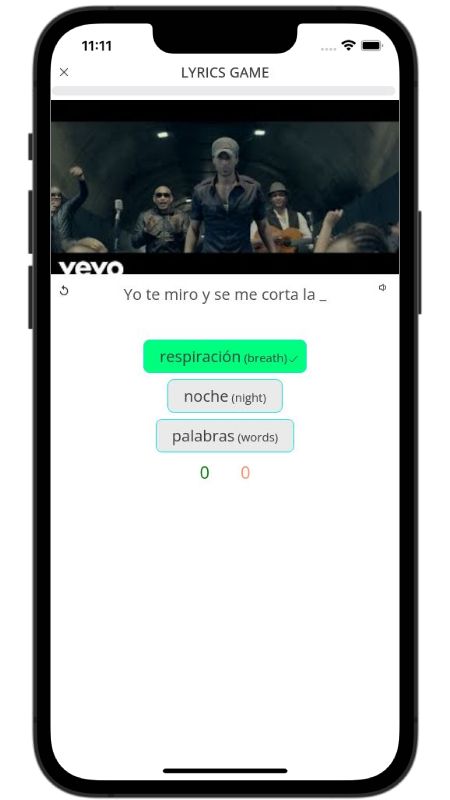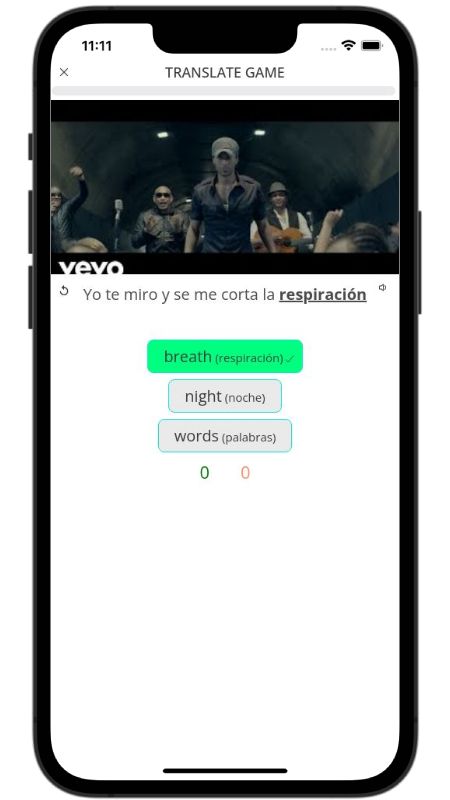Pecador Lyrics in English Residente
Below, I translated the lyrics of the song Pecador by Residente from Spanish to English.
I'm Residente
I'm the highest exponent of sin, I'm lucky
If they knew what I have in my head
They'd give me the death penalty
I'm not a Christmas candy inside a stocking
I'm not
I'm the one who shows up at your house to piss on your yard
Even if I don't have someone to battle, I'm always in the ring
I've f*cked up badly, but I always land on my feet
Either way I'm still singled out everywhere
Let whoever is free of sin throw the first stone
I get obnoxious when I'm drunk
And they get scared because they know I'm armed with my fingers
On the computer, rubbing against the keyboard
I shoot lyrics on the laptop, in the notebook or on the napkin
I'm more dangerous than a religious fanatic with two shotguns
I hear voices every time I turn off the light
When I question what you didn't question
That's why sometimes the verses I write
Make it so that the nails pop out of Jesus's cross
I'm Jack in The Shining
The ripper, the lyrical one, a predator
The one who puts them in the dining room on the chopping block
And eats them without a fork
I'm the elevator doors
When they won't open in the middle of an earthquake
The pain the doctor couldn't cure
An abuser of rappers like a pastor
A preacher when he abuses a minor
I'm a sinner
Because I pray only when the plane shakes
Because I'm not what people want me to be
Because I don't believe in things until I see them
I go against the tide and I don't believe in hell or heaven
Nor in the tales of the Holy Land
You live what the body can stand
When I die I'm gonna be fertilizer for the plants
And the worms of the earth rise
They eat my body, they choke
And my spirit transplants itself to your kids' room
And at night, next to their teddy bears, it scares them
I'm a sinner because I have to calm myself with pills from the drugstore
So I don't kill these sh*tty YouTubers
Who do comedy on Instagram and aren't funny
I'm a sinner because my only virtue
Is that I'm full of flaws
I love offending those who wanna project their intellect
With their politically correct dialect
I'm a sinner because I'm not faithful
In my head I've got a brothel
And the sex I have is politically incorrect
Like a low-class motel
Bodies covered in honey with cake frosting
I take my role of smacking all of them on the a*s
With the bad mood of a stepdad
Who has to raise a kid that isn't his
I'm a sinner because I can't stand some trappers and reggaetoners
Who from the stands wanna devour the world, the sun and the moon
But their lyrics drown like an olive
I've got the vaccine for those who f*ck up music and make a fortune
I put them to sleep in the cradle, I take away their hunger
When I rap one in their face like Ozuna
I make music even if it brings no income
Better that they remember me because I express myself
Spitting in excess
Because I've got more bars than a prison for inmates
I leave them stiff when I shoot with more weight
Than an obese sumo wrestler wrapped in a flour taco with cheese
That's why
I'm a sinner
Because by rapping without kneeling I confess
I don't know the ground because I always fly
In an orchestra of violins I'm the cello
Residente is always different
There're no twins, nothing parallel
In this game I'm the salt that changed the caramel's flavor
When my words cover their faces with a bandana
I lose sleep, throwing punches online I'm Canelo
With my tools I dismantle them
Like a hungry thief strips a brand-new car
These chicks, from the farm their jealousy sprouts
Because they look up to the sky and yearn when they see me
And before the duel even starts
They already smell like a corpse, like a great-grandfather
This is my turf and if you trespass it
My tongue like an armless snake
Chokes them when it hugs them
Because Residente goes too far with these kids
Like the ones Michael Jackson used to molest in his house
Most of them are child-sized rockstars
Pulled out of a boy band
Trying to be hostile for the profile picture
I laugh at them like Janeiro in Brazil
A fierce gang of dumbf*cks with no voice
They're Chinese rice without rice, they're a hello and goodbye
Their careers end fast, as quick as premature ejaculation
They fall like dominoes when the vein in my forehead pops out
I turn them into sh*t colored terracotta
These idiots with tattooed faces
I set them on fire easily, just like weed lights up
I'm a sinner with many victories and zero defeats
Those who criticize my rap go after my balls
Because my rhyme floats when it walks on water
They follow me even if I'm bankrupt with no cash for the payment
In Spanish rap we pull on our boots
I'm a sinner because today hip hop's written with a J
With a J
With a J
I'm a sinner because today hip hop's written with a J
Hip hop's written with a J
Hip hop's written with a J, with a J
I'm a sinner because today hip hop's written with a J
Lyrics and Translations Licensed & Provided by LyricFind
Did you like this lyrics translation?
Did you know?
In addition to reading lyric translations, you can now learn Spanish with music and lyrics from your favorite artists.
No more boring lessons. You can now learn with engaging and culturally relevant lyrics from the best artists.
Apple and App Store are trademarks of Apple Inc.
Google Play and the Google Play logo are trademarks of Google LLC.
iOS AppAndroid AppWeb LessonsFree PDF WorksheetsJoin ClassroomLyrics TranslationBlogAbout UsBuy as GiftLifetime











